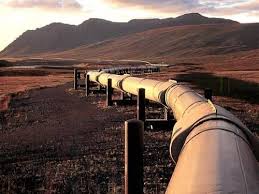Amid diplomatic turmoil caused by some disagreements over fisheries, Senegal and Mauritania have adopted the “most intelligent strategy” to achieve joint management of their gas resources for the benefit of the two peoples, Dr. Boubacar Mbodj, Energy and Environment Advisor to President Macky Sall said in an interview with APA.
Considering that natural resources are often sources of border disputes, how do you explain the agreement reached by Senegal and Mauritania on their common gas field?
It is true that natural resources, straddling countries, often cause tension and even conflict. As for the Great Tortoise-Ahmeyin (GTA) field, located on the Senegal-Mauritanian border, the two governments began negotiations very early on. They have reached an agreement to share the resource.
Senegal and Mauritania have been supported in this process by international organizations, such as the World Bank. When the oil and gas industry wants to invest in a promising field, it ensures that there will be no conflict. For this, the regulatory framework must be secure beforehand.
The two countries have committed very reputable companies in this area to reflect on the distribution of gas. And there was an agreement signed in 2017 for an equitable sharing of this resource.
In the current context of Africa where we fight to get out of underdevelopment, when there are such opportunities, the smartest strategy is to sit and talk together on ways to jointly manage resources to the benefit of the two peoples.
Read also: Macky Sall’s visit in Nouakchott comes “at the right time” (economist)
Senegal has much to learn from Mauritania in gas exploitation. Are the two governments cooperating for greater efficiency?
Mauritania is a little more advanced than Senegal in the exploitation of hydrocarbons. In addition to the Grand Tortue-Ahmeyin (GTA), Nouakchott already operates another gas field. It is possible to go there and witness how things are evolving, the difficulties they have encountered, the pitfalls they have gone through and their organizational model that we can get inspiration from.
In the field of training, the Dakar-based National Institute of Oil and Gas has trained Mauritanians as part of its second batch of graduates. Despite the proximity of our states, we have not mixed enough with the Mauritanians. We are neighbors but we are not very close. We must overcome such differences, to facilitate economic integration.
Read also: Dakar, Nouakchott reinforce cooperation links
What benefits can the two countries draw from the exploitation of gas planned for 2022?
The gas industry will open up other prospects for economic, social and even cultural cooperation between Senegal and Mauritania. A year ago, these two countries agreed, once gas is extracted, to build a 500 to 600-megawatt power plant.
I think there is a wide-range of collective actions to carry out in the aftermath of the discovery of gas, in order to achieve co-development in the two countries or even of the sub-region. The overall objective is to provide the Economic Community of West African States (ECOWAS) with enough energy resources necessary for harmonious development. It is illusory to think only of the development of Senegal.
In terms of job creation, recovery of the trade balance, the development of natural resources through industry will be essential in our march towards development.
We have already passed a law on local content. Senegal and Mauritania want to involve local companies in the exploitation of gas. These companies can capture part of the business opportunities offered by the oil and gas industry.
This industry needs a lot of support services. The local content law requires, as a priority, that businesses in Senegal and Mauritania be fully involved; but in return, they are required to meet the specifications.
ID/Dng/fss/abj/APA


